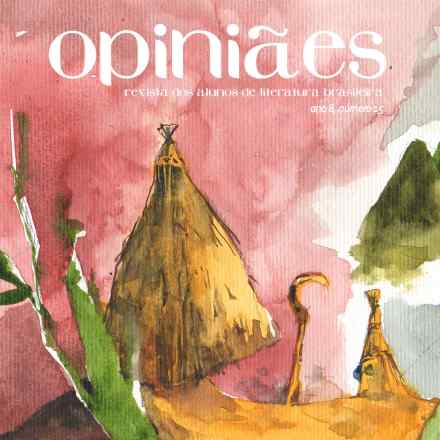O jogo do olhar feminino em "Minha gente" de Guimarães Rosa
Opiniães
O jogo do olhar feminino em "Minha gente" de Guimarães Rosa
Autor Correspondente: A. L. Branco | [email protected]
Palavras-chave: Guimarães Rosa, “Minha genteâ€, olhar feminino, interesses duplos, feminino mitológico, feminine eye, double interests, mythological feminine
Resumos Cadastrados
Resumo Português:
Este ensaio procura abarcar o jogo do olhar na estória “Minha genteâ€, de Sagarana (1946), a partir do olhar feminino de Maria Irma. Acredita-se que em suas relações interpessoais – famÃlia/negócios, amizade, amor – a personagem Maria Irma exercita uma sutil articulação de peças, para ser verossÃmil com um léxico forte no conto (o xadrez), que visa a seu interesse pessoal bem como familiar/social. Esse traço pode aproximar Maria Irma de algumas figuras mÃticas da cultura ocidental. Por astúcia sorrateira, ela demonstra uma subjetividade do gênero parcialmente distinta daquela que se costuma apreender na tradição do patriarcado, marcada por uma maior submissão da mulher. No entanto, o jogo de sedução e ludibrio que se revela nessa narrativa visa à manutenção e preservação da hegemonia masculina familiar e polÃtica de cunho patriarcal. Maria Irma representaria, na proposta defendida aqui, a tensão entre o avanço e o recuo do gênero feminino na ficção de Rosa, oscilando entre afirmar seu desejo e também garantir o status quo familiar.
Resumo Inglês:
This essay aims to cover the game of perception in the story “Minha Genteâ€, Sagarana (1946), from the feminine point of view of Maria Irma. We believe that in her interpersonal relationships - family/business, friendship, love - the character exerts a subtle articulation of pieces, to be verisimilar with a strong lexicon in the story (that of chess), that aims for her personal interest as well as for her family/social interests. With this trait Maria Irma approaches some of the mythical figures of the Western culture. Sly and cunning, she demonstrates a subjectivity of gender, which is partially distinct from the one usually learned in the patriarchal tradition, marked by a greater submission of the woman. However, the seduction game that is revealed in this narrative aims at maintaining and preserving male hegemony and the patriarchal politics. In the proposal defended here,Maria Irma can represent the tension between the progress and the withdrawal of the female gender in Rosa’s fiction, oscillating between stating her desire and ensuring the familiar status quo.

